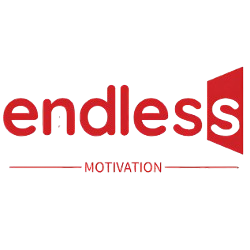Let’s be honest. The term “self-love” has been polished into a shiny, almost meaningless cliché. It’s plastered on pastel Instagram posts, whispered in yoga studios, and sold to us as the ultimate panacea. But for many of us, trying to “love ourselves” feels like trying to grasp smoke. We read the quotes, we repeat the affirmations, and yet, the critical inner voice remains, a constant companion whispering tales of our inadequacy.
What if we’ve been thinking about self-love all wrong?
True self-love isn’t a destination you arrive at, a state of perpetual bliss, or a feeling you force. It’s not about staring in the mirror and declaring your undying devotion. It’s something far more gritty, practical, and powerful. It’s a commitment. A commitment to treating yourself with the same loyalty, honesty, and fierce protection you would offer your best friend, your child, or a loved one in need.
This guide is for those who are tired of the fluff and ready for the real work. We’re going to deconstruct self-love into actionable, understandable components, using wisdom from timeless quotes as our roadmap. This isn’t about transforming into a different person; it’s about coming home to the one you already are.
Part 1: The Three Pillars of Authentic Self-Love
To build a sustainable practice, we need to move beyond vague concepts. Authentic self-love stands on three core pillars:
- Self-Awareness: The courage to see yourself clearly, without the filter of judgment. This is the “what is.”
- Self-Acceptance: The willingness to embrace what you see, including your flaws and past mistakes. This is the “it’s okay that this is.”
- Self-Action: The commitment to make choices that honor your well-being, set boundaries, and support your growth. This is the “what I will do about it.”
When one pillar is weak, the entire structure wobbles. You can’t take loving action if you don’t accept yourself, and you can’t accept what you’re not aware of.
Part 2: The Quote Pharmacy: Prescriptions for Your Inner World
Think of these quotes not as platitudes, but as prescriptions. Each one targets a specific cognitive distortion or emotional wound. Find the one that addresses what ails you today.
For When You Feel Unworthy and “Not Enough”
The Ailment: A deep-seated feeling of inherent flaw, that you are fundamentally lacking compared to others.
The Prescription:
“You are not a drop in the ocean. You are the entire ocean in a drop.” – Rumi
The Dosage: This quote isn’t just beautiful; it’s a radical reframing of your identity. It moves you from a perspective of scarcity (“I’m just one small, insignificant thing”) to one of profound abundance (“I contain universes within me”). When you feel small, repeat this to yourself. It asserts that your worth is not comparative; it is intrinsic and infinite.
Practical Application: Write this quote on a notecard. When you’re feeling insignificant at work, in a social situation, or just scrolling online, pull it out. Your value is not determined by your visibility.
For When Your Inner Critic is Shouting
The Ailment: The voice in your head is relentless, pointing out every mistake, flaw, and shortcoming.
The Prescription:
“Talk to yourself like you would to someone you love.” – Brené Brown
The Dosage: This is arguably the most practical instruction for self-love ever given. It’s a simple, actionable filter for your thoughts. The moment you hear the critic, pause and ask: “Would I say this to my best friend who was hurting?” If the answer is no, then it’s not acceptable to say to yourself. This quote bridges the gap between intention and action.
Practical Application: For one day, commit to noticing your self-talk. Don’t try to change it yet, just observe. For every critical thought, consciously rephrase it as if you were speaking to a beloved friend. “I’m such an idiot for forgetting that” becomes “It’s okay, everyone forgets things sometimes. What’s the solution?”
For When You’re Stuck in the Past
The Ailment: Regret, shame, and rumination over past mistakes hold you hostage, preventing you from moving forward.
The Prescription:
“Forgiveness is giving up the hope that the past could have been any different.” – Oprah Winfrey
The Dosage: This quote is a psychological masterstroke. It redefines forgiveness not as condoning what happened, but as releasing the exhausting, futile energy of wishing reality were different. It’s an act of accepting the unchangeable so you can reclaim your power in the present.
Practical Application: Identify one past event you can’t forgive yourself for. Write it down. Then, write next to it: “I give up the hope that this could have happened any other way.” This isn’t about approval; it’s about acceptance, which is the precursor to freedom.
For When You’re Exhausted and Feel You Must Do It All
The Ailment: Burnout, resentment, and the feeling that your worth is tied to your productivity.
The Prescription:
“Rest is not idle, it is not wasteful. Sometimes rest is the most spiritual thing you can do.” – Unknown
The Dosage: In a culture that worships “hustle,” this quote is a rebellious act. It sanctifies rest. It frames inactivity not as laziness, but as a necessary, sacred component of a whole life. Self-love means honoring your human limits.
Practical Application: Schedule rest like you would an important meeting. This could be 20 minutes of doing absolutely nothing, a nap, or time in nature without a phone. When the guilt arises, repeat this quote as your mantra.
For When You Need to Set a Boundary
The Ailment: Feeling drained, used, or resentful because you struggle to say “no” and protect your energy.
The Prescription:
“No’ is a complete sentence.” – Anne Lamott
The Dosage: This quote is a weapon against people-pleasing. It gives you permission to state your needs without justification, excuse, or apology. It is the ultimate expression of self-respect. Loving yourself means valuing your time and energy enough to guard them.
Practical Application: Think of a small request you want to say no to. Practice saying just “No, thank you,” or simply “I can’t.” Notice the discomfort, but also notice the power. You do not owe anyone your exhaustion.
Part 3: The 30-Day Self-Love Challenge: From Theory to Practice
Reading is passive; transformation is active. Commit to this 30-day plan to rewire your habits.
Week 1: The Observer
- Task: Carry a small notebook. Tally every self-critical thought you have. No judgment, just data collection.
- Goal: To build awareness of your inner critic’s frequency and triggers.
Week 2: The Translator
- Task: For every critical thought you notice, “translate” it into a compassionate one using the quotes above as a guide.
- Goal: To begin actively challenging and changing the narrative.
Week 3: The Advocate
- Task: Perform one deliberate “Self-Love Action” each day. This could be setting one small boundary, taking a break when tired, or eating a nutritious meal.
- Goal: To align your behavior with your new, compassionate thoughts.
Week 4: The Integrator
- Task: At the end of each day, write down one thing you did that was an act of self-respect or kindness.
- Goal: To solidify the identity of someone who loves and cares for themselves.
The Ripple Effect: Why Your Self-Love is a Gift to the World
Choosing self-love is often framed as a selfish act. This is a profound misunderstanding. A person who is full of self-loathing, exhaustion, and resentment has very little to give to others. They give from a place of depletion, often with strings attached.
When you cultivate self-love:
- You become a better listener because you’re not desperately seeking validation.
- You offer genuine compassion to others because you’ve learned how to offer it to yourself.
- You inspire those around you simply by modeling what it looks like to live with self-respect.
- You contribute from a place of abundance, not depletion.
Your healed heart becomes a healing presence in the world.
Conclusion: The Journey Home Begins With a Single Step
The path to self-love is not a straight line. It’s a spiral. You will circle back to old doubts and fears, but each time you do, you’ll be armed with more awareness, more tools, and more compassion. Some days, self-love will feel like a warm embrace. Other days, it will feel like a defiant act of setting a boundary or choosing rest. Both count.
Start today. Not with a grand declaration, but with a single, small choice. Choose the kind word over the critical one. Choose the boundary over the resentment. Choose the rest over the burnout.
Pick one quote from this guide that resonates most deeply with the struggle you’re facing right now. Write it down. Put it where you can see it. Let it be the first brick you lay on your path back to yourself.
You are worth the effort. You are worth the patience. You are worth the love.
Your Turn: Which “prescription” did you need to hear today? Share the quote and one small action you’ll take in the comments below to make it real. Let’s support each other on this journey.

